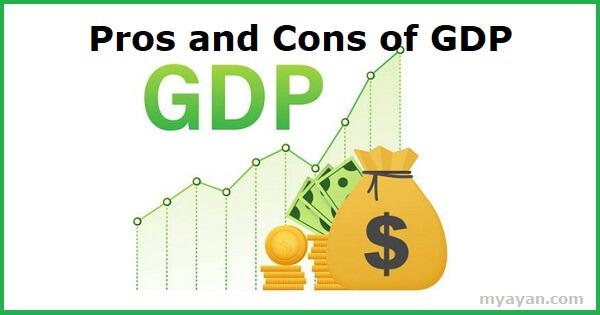A nation's gross domestic product (GDP) is calculated as the sum of the prices of all the products and services produced within its boundaries during a given period, often a year. It is a crucial indicator of a nation's economic prosperity and well-being. GDP calculates the dollar value of all finished products and services produced in a nation, including exports, investment goods, government services, and consumer items, less the dollar value of imports.
1. The expenditure technique calculates the total amount spent on goods and services in a nation. Consumer expenditure (C), investment spending (I), government spending (G), and net exports (NX), which is the sum of exports (X) and imports (M), make up its four components. GDP = C + I + G + NX is the formula for computing GDP using the expenditure method.
2. The Income Strategy: This method calculates the overall revenue received by businesses and families within a nation. It comprises payments made to employees in the form of wages, salaries, benefits, profits made by enterprises, rental income, and taxes paid to the government. GDP is calculated using the income technique: GDP = salaries, profits, rental income, and taxes.
3. The value of all commodities and services generated in a nation is calculated using the production approach. It covers the value of final products (goods sold to consumers) and intermediate commodities (goods produced from other goods). According to the production method, GDP is calculated as the total value added by all economic producers.
Generally, GDP is used to evaluate the economic performance of other nations and is a measure of a country's economic activity. Even though GDP has many limits, it is still a popular and significant indicator of economic expansion and progress.
GDP records the overall production of goods and services. It is a trustworthy indicator of a nation's economic activity. It is a crucial gauge of an economy's overall health and may inform policymakers about the effects of different initiatives and occurrences.
GDP offers a uniform means of comparing the economic performance of various nations. We can assess the relative economic strength of each nation by calculating the overall output of goods and services, and we may also identify areas for development.
By examining past trends, GDP may be used to forecast future economic growth. Without any significant interruptions, GDP growth that has been high in the past is anticipated to continue.
By giving decision-makers a gauge of economic activity and growth, the GDP may assist in informing policy. It may inform choices on taxation, public expenditure, and monetary policy.
GDP promotes innovation by rewarding businesses and people that create items and services that people want to buy. Innovations and products that enhance people's lives and provide employment may result.
Income inequality can skew the overall image of economic health because GDP does not account for it. When GDP growth occurs, some people may profit while others may lose.
GDP does not consider how economic activity affects the environment. It may result in unsustainable growth that harms the environment and jeopardizes the economy's long-term viability.
GDP does not consider non-financial aspects, including lifestyle, health, and education. These elements are as significant in determining a nation's residents' well-being as economic progress.
GDP can promote short-term thinking by emphasizing instant gains over long-term sustainability. It can prioritize short-term profits over long-term sustainability. It may result in long-term economic harm due to unsustainable expansion.
Which include bartering, underground marketplaces, and unpaid labor because it solely tracks official economic activity. It may result in an incomplete view of a nation's economic activity.
Conclusion
While GDP has certain benefits as a gauge of economic activity and growth, it also has constraints and disadvantages. It is crucial to understand that the GDP is not a perfect indicator of economic health and that other variables, such as income inequality, environmental effects, and non-financial variables, must also be considered. Policymakers should look at some indicators rather than relying simply on GDP to evaluate the state of an economy. Economic policy should encourage sustainable growth that benefits all citizens, not just the rich.

GDP is significant since it provides information on the size and health of an economy. Real GDP growth is frequently used to gauge the economy's overall health. Generally, real GDP growth is seen as a positive indicator of the economy's health.
One of its drawbacks is that the real GDP per capita needs to consider a person's place of residence when assessing the costs of living. It determines an average value.
Most economists, governments, and companies like to see a continually increasing GDP, which indicates more consumer spending, job growth, tax revenue, and worker wage increases.GDP declines indicate a contracting economy, which is bad news for firms and employees.
Due to statistical distortions brought on by the pandemic, the GDP has now moderated from 13.5% in the first quarter of FY23. The Reserve Bank of India's aggressive rate increases to control the nation's high inflation rates are also to blame for the lower GDP growth.